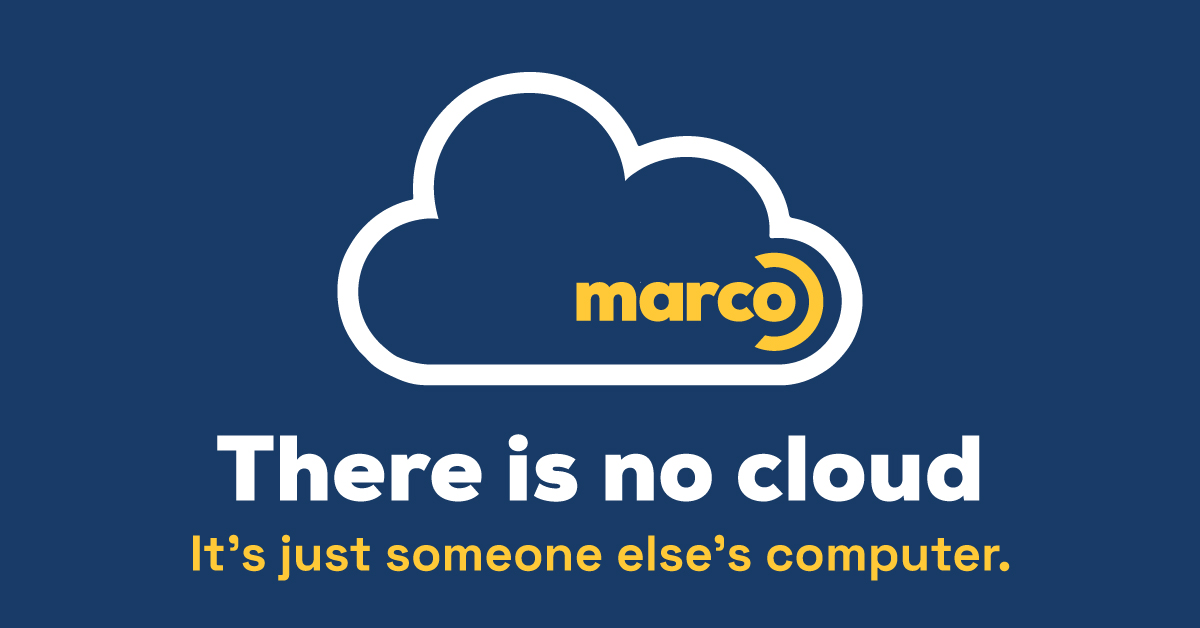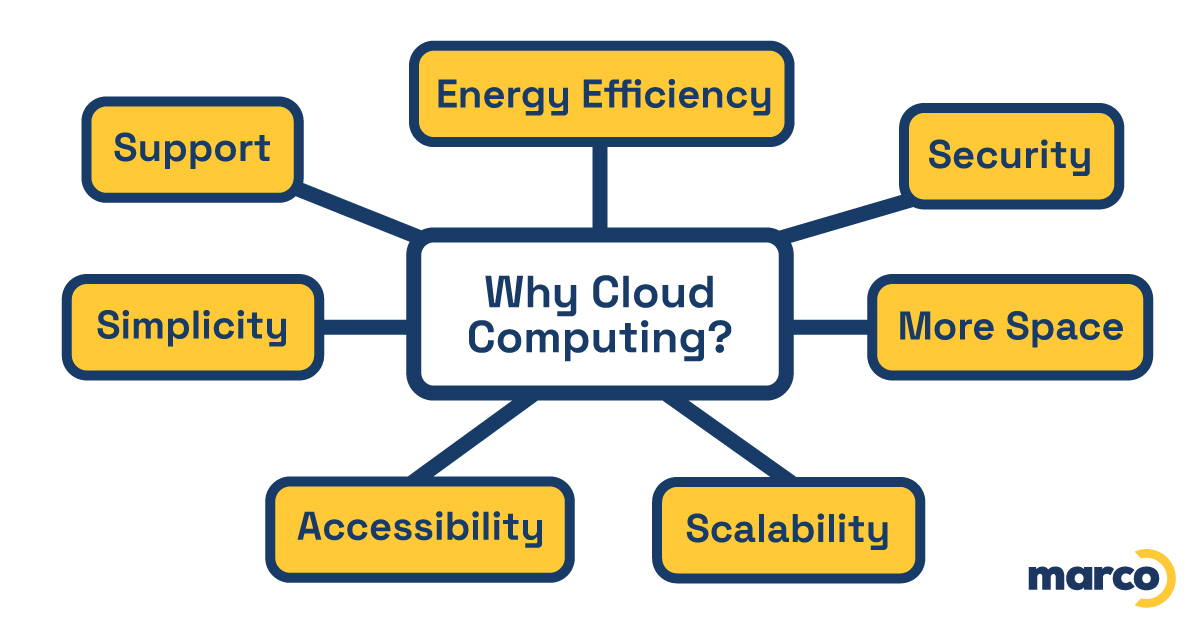By now, the cloud is one of those terms like manger or spangled — many people have a vague sense of what it means but wouldn’t be able to provide an accurate definition. And as cloud solutions have been adopted by so many businesses over the past few years, they might feel like it’s too late to ask.
So if that describes you, don’t worry. Not only are you in good company (even among some IT folks, believe it or not), but I’ve created this blog just for you.
What Is the Cloud?

This might be a little disappointing…
In a nutshell, the cloud is just a network of servers that host apps and store data for individuals and organizations. Cloud computing refers to accessing these apps and data through the internet.
The cloud got its name because when the internet was originally being depicted, multiple publications used the image of a cloud. It was such a good metaphor that when it came time to give this network of servers a name, the cloud was the immediate logical choice. And just like clouds in real life, there’s more than one type.
What Are the Different Types of Clouds?
There are three main types of clouds: public, private, and hybrid. Let’s explore each of these in a little more detail.
1. Public Clouds
As the name suggests, a public cloud is one that is open to individuals and organizations. They’re known for providing a fair amount of customization and efficiency.
Examples: Dropbox, Netflix, Microsoft365
2. Private Clouds
Some clouds are only intended to serve one organization or one network. Private clouds are known for offering better security, and a greater degree of customization and control, making them especially appealing for larger organizations.
Examples: Amazon VPC, IBM Cloud VPC, Google Cloud Platform
3. Hybrid Clouds
Hybrid clouds contain both public and private elements in order to give you the best of both worlds.
Examples: Azure Stack, Google Anthos, AWS Outposts
Why Should Businesses Use the Cloud?

While some people may fear losing their data in the cloud, there are a number of reasons why cloud computing has become so common.
Greater Accessibility
This is almost a no-brainer after COVID, but public cloud solutions allow workers to access the same set of tools on just about any smart device from just about anywhere. Even private clouds can be accessed from multiple entry points within an organization.
Additionally, cloud solutions also allow smaller organizations better access to powerful, world-class tools without making a significant upfront investment.
Time-Saving Simplicity
Providers are responsible for maintaining and updating their own solutions, freeing up some time for IT staff. Cloud solutions also tend to make life easier for end users. They’re designed to be more intuitive and relatively quick to master, and most offer helpful integrations with other tools and systems.
Easy Scalability
Organizations can easily add and remove features and users, so they’re not stuck paying for more than they need.
Less Energy Use and More Space
Not all cloud systems and tools are powered solely through renewable energy, but using shared servers is still a greener way to go. Not having to host and power as many on-site servers also helps save on space and energy costs.
Better Support
As cloud solutions aren’t a one-time transaction but are instead provided as an ongoing service, providers are getting much better at providing prompt, friendly technical support. Okay, so it’s not always going to be on par with those industries that compete primarily on support and customer service for a long time. Many providers still tend to be reactive as opposed to proactive. But overall, this industry has come a long, long way very quickly.
Robust Security
Companies that provide cloud services understand that their reputation is on the line when it comes to cybersecurity. And any provider worth their salt will have dedicated a sizable portion of their time and resources into making sure their solutions make their clients more secure, not less.
That said, if you don’t configure your tools correctly or your staff doesn’t follow best practices, your data and infrastructure might be at risk.

88% of cloud breaches are caused by human error, which means that they’re usually preventable. What makes this a little tricky for internal IT teams is that providers tend to have a wide variety of different settings. You really have to understand the implications of each tool and how it will be used, and you can’t just apply the same set of rules for each solution.
And if you’re wondering…yes, our cybersecurity team can help with that.
Need a Little Help Beyond Cloud Computing 101?
If your organization is interested in using more cloud tools and systems, you don’t have to spend time reinventing the wheel. The cloud experts at Marco have created an online tool to help you assess your needs and get custom recommendations.
Click below to download it!

